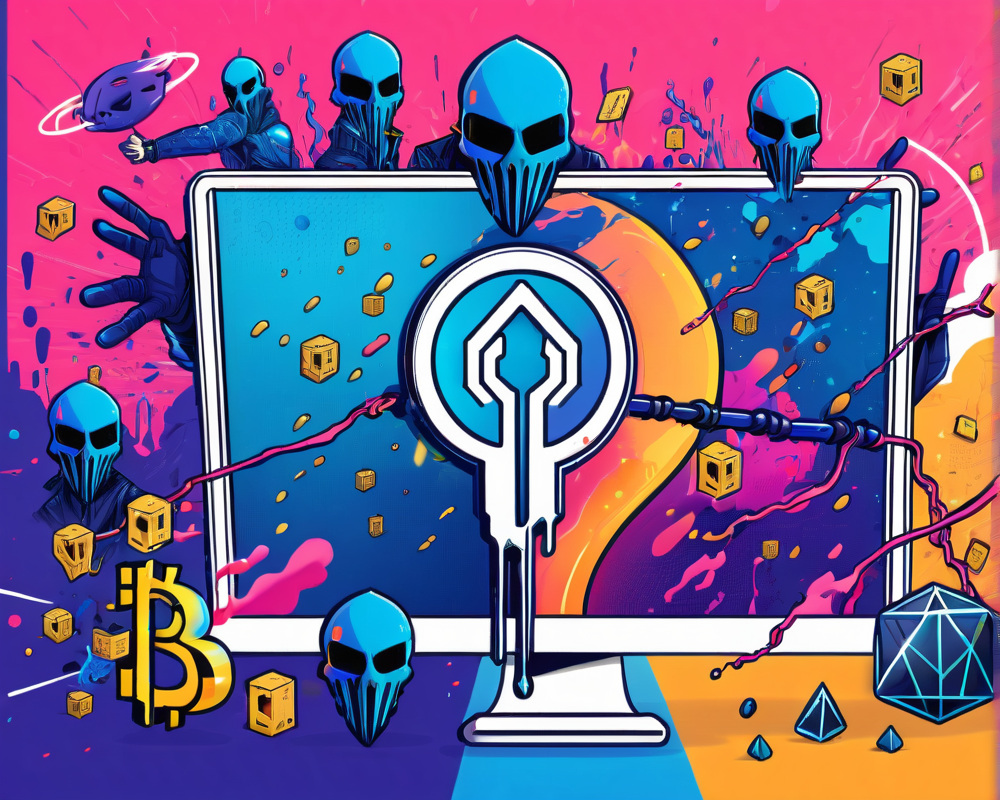Navigating the Roller Coaster of Crypto
The world of cryptocurrencies is nothing short of a thrilling amusement park ride, where the highs can make you feel like you’ve just won the lottery, and the lows can have you questioning your life choices. The erratic price swings of digital assets have become legendary, especially in these bear market days when even seasoned investors can feel like they’re holding onto a roller coaster, praying it doesn’t plunge into a sea of despair.
The Emotional Toll of Extreme Fluctuations
When your investment can gain or lose double-digit percentages in a day, mental health isn’t just a luxury; it’s a necessity. The cascading effects of market crashes, like the infamous Terra collapse, starkly illustrate this reality. In a matter of hours, countless investors witnessed their savings evaporate, leading many to seek help from suicide hotlines. It begs the question: how can one guard their mental health amidst such chaos?
Psychological Pitfalls in Trading
Even well-informed investors are prone to lapses in judgment when emotions run high. Here are some common mistakes that can trip up the unprepared:
- Gambler syndrome: This is where newbies dive headfirst into trades without a life jacket.
- Premature exits: The excitement of a small profit can lead to closing trades too soon, losing out on larger gains.
- Over-reliance on others: Seeking validation through social signals can cloud personal judgment.
- Emotional responses: The crypto market is a soap opera for emotions; news can send prices spiraling in an instant.
- Euphoria overload: The thrill of a first gain could be the gateway to reckless trading behavior.
Amid this chaos, the fear of missing out, commonly referred to as FOMO, becomes an omnipresent specter for investors. It’s the nagging thought that someone, somewhere is making profits while you sit idly, twiddling your thumbs.
The Downside of Digital Obsession
Trade too much, and you might start resembling a caffeine-driven squirrel. Crypto addiction is real, with symptoms akin to those of gambling disorders. Traders constantly tracking their investments can lead to serious mental and physical health issues such as anxiety and insomnia. The cause? Unruly market fluctuations, combined with a compulsive desire to monitor and manage investments around the clock.
Profile of the ‘Crypto Addict’
Researchers are taking a hard look at which types of personalities are more susceptible to crypto addiction. Here’s a rundown of potential suspects:
- The Gambler: Thrives on risk and often seeks the thrill of uncertainty.
- The Cynic: Distrusts authority and is attracted to the decentralized nature of cryptocurrencies.
- The Narcissist: Overconfident and ready to embrace risky investments because they believe they can’t lose.
- The Psychopath: Emotionally detached and impulsive, making them prone to reckless trading.
- The Sadist: Finds satisfaction in the misfortune of others, particularly in highly volatile markets.
However, most investors are not teetering on the edge of mental disturbance. Remember: balance is essential. Planning how much you’re willing to risk can prevent trading from consuming your life.
The Road to Emotional Resilience
Investors need a game plan. Here’s how to maintain mental clarity in the unpredictable world of crypto:
- Limit exposure: Set clear boundaries on how much you can afford to trade or lose.
- Educate yourself: Knowledge can temper emotional reactions; understanding market behaviors can be your shield.
- Think long-term: For many, the best strategy is simply to buy and hold rather than engage in constant trading.
- Seek support: Don’t be afraid to talk to others or seek professional help if trading consumes you.
In the wise words of a smart investment manager: “Time is on your side.” In the chaotic world of cryptocurrencies, perspective is key.




